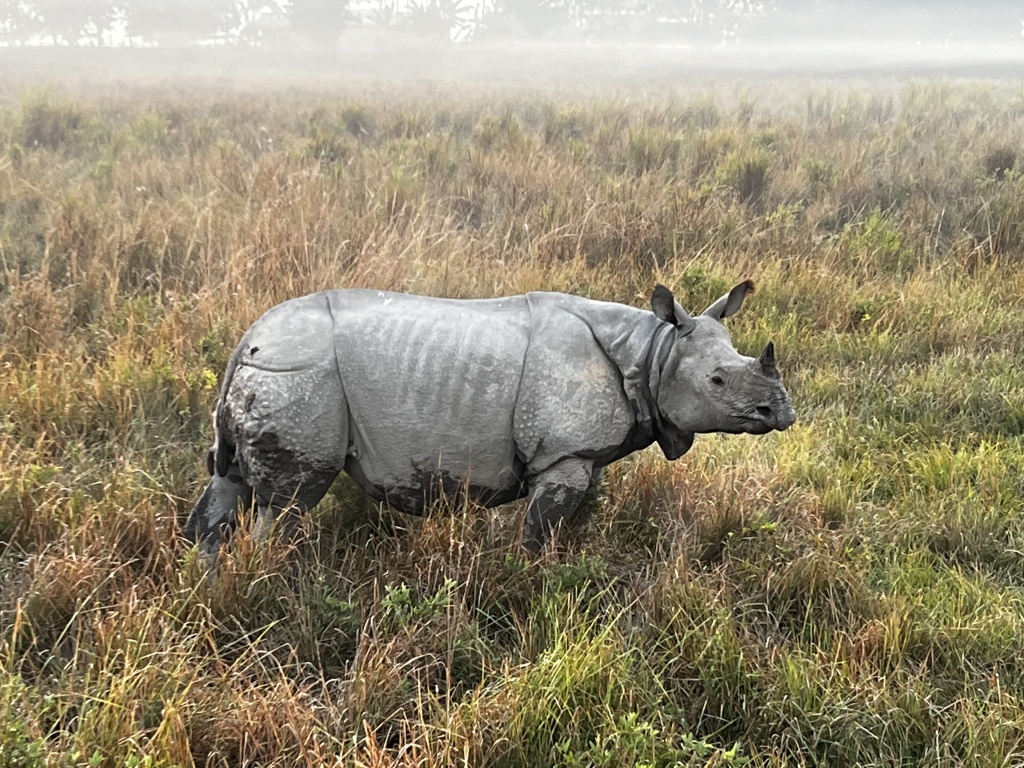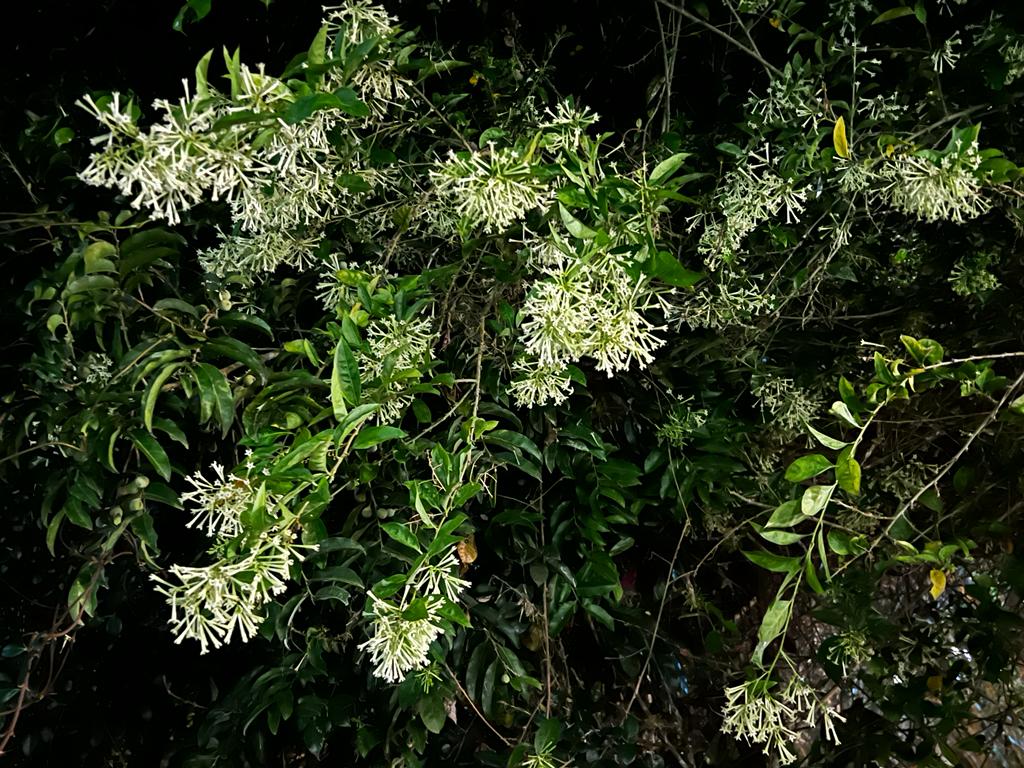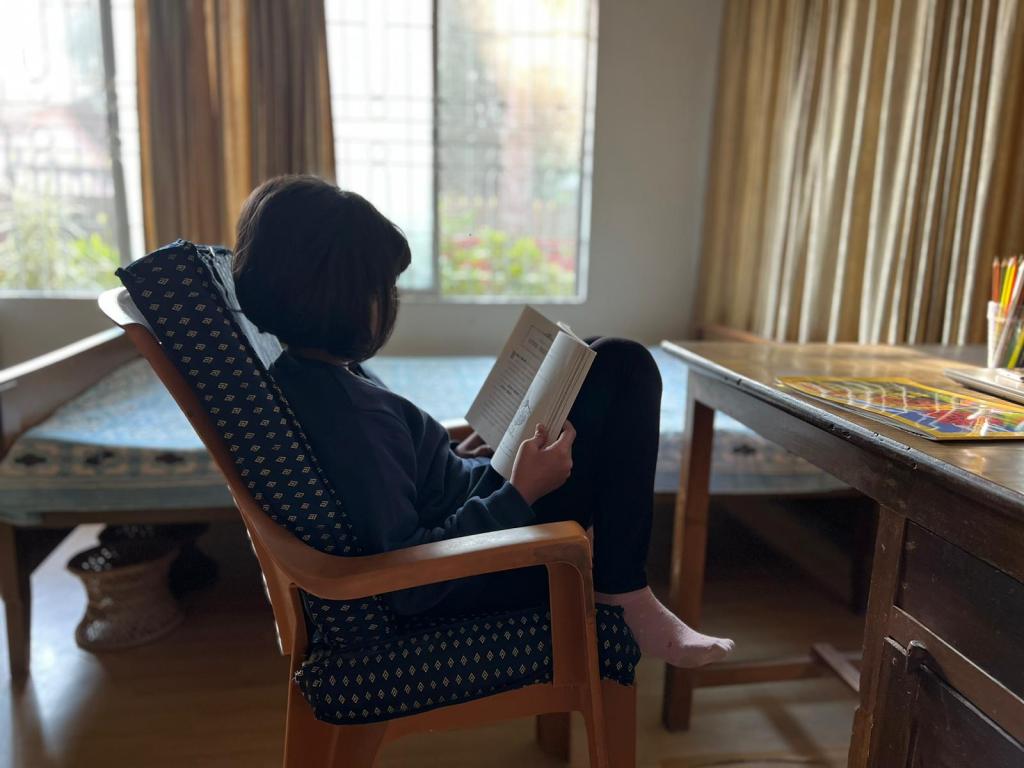There’s a lot to unpack. Yes, and the suitcases too.
You know what, the funny thing is that I thought I was okay. I mean, I hadn’t been home in four years, but hey, COVID sucks and I do talk to my parents on video chat all the time and wasn’t being safe better than anything else? After all I had a teensy baby and then a toddler to worry about.
I have two words for my own self now : defence mechanism, or the classic case of “the grapes are sour”. Because I couldn’t go home, I told myself I was okay with not going home. How wrong I was.
From the moment the flight attendant announced that the flight was about to land in Lokapriya Gopinath Bordoloi International Airport, I started bawling like a baby. My eyes peeled to the window for the sight of the familiar blue hills, the lush greenery nestled within, I kept thinking, “This is home. MY home. I am home.” I couldn’t stop crying, try as I might. I should have known that it was just a preview of what was to follow- my hurricane holiday home after four years was an overwhelmingly emotional ride.
Guwahati was, well, as jarring as Guwahati can be. It’s growing, that’s for sure, but for now it feels like it’s in that awkward gangly teenage phase where it’s trying out new trendy things and still hasn’t figured out which one it wants to be. There are grand malls with hundreds of brands under one roof, and right when you step outside you see paan-stained walls. There are ride hailing apps like Uber, sure, but try get one to take you anywhere within 15 minutes drive, and you’ll get at least ten cancellations before someone finally arrives at your doorstep. There are flyovers being constructed left, right and centre, but the road that cars are actually driving on are a network of potholes stitched in gravel. The RJ on the radio talks in an accented Assamese that I barely understand but roadside brawls are still conducted enthusiastically in crude colloquial khar-khuwa and bal-kela kuwa Oxomiya (pardon my language, my Assamese speakers)
But then again, this is the same Guwahati I’d spent three years in as a student, and while it might have morphed into this enigma of a place that I still haven’t come to terms with, it is still where a piece of my heart is. And so, as we crossed the road from the Pantaloons in Downtown to go to Govindam’s across the road for saah-mithai while navigating a full flow of traffic and the elder one giggled at this obvious travesty, I simply held her hand a little tighter and hitched my mekhela a little higher. As we rode the auto-rickshaw back home, I tried to shield her from the dust by covering her with my sador but she violently shrugged it off, saying she couldn’t see anything. She was obviously having fun, grinning ear to ear, while the poor husband “sat” with his bottom hovering slightly over the seat while passing speed bumps and potholes to save his already broken back. Needless to say, the whole experience was saved in the elder one’s holiday file as “the most fun ever”.
The littler one, surprisingly enough, adjusted right away, despite never having met her grandparents or been in Assam before. The moment we reached home, she took upon herself to explore all the nooks and crannies of our place, and promptly decided that murhas are the most interesting objects ever. She found two, a big one for her Mamma and an itty bitty one that was just right for her, and was entertained enough to ignore the ominous swarm of mosquitoes following her wherever she went (tsk, tsk, Guwahati)
And then of course, there were the people – some I met for the first time, and some I met after over a decade. Only at home will someone bring me boondiya-bhujiya because I’d mentioned that I missed it terribly here, and shower the whole family with gifts just because we were meeting for the first time.
(Forgive me the aside, but isn’t it the most ideal snack ever? The sweet from the sugar soaked boondiya versus the savouriness from the bhujiya; the soft and squishy boondiya versus the crunchiness from the bhujiya. I think us Assamese have really hit the perfect spot with that one.)
But yes, meeting old friends was such a revelation, in the sense, it made me realise that “Toi ekei aso” (“You’re still the same”) is really the best compliment anyone can give. Makes me wonder though – time changes and shapes us all the time, and we grow through our world experiences. Why, then, is there the hankering to preserve that bit of us that others knew? I myself am proud of how much I have grown over the last few years – heck, I have worked hard to grow and change. And yet, when my friends from university tell me that I am the same, I take pride in that as well.
Onwards then, to Kaziranga, where the whole family gathered for a night’s stay at Borgos Resort. It was definitely colder than in Guwahati, but the fireplaces strategically placed in the gardens really helped. My highlight there has to be the authentic Oxomiya meal that we had right after we reached – I loved the omitar khaar so much I ordered just that and rice with a splash of mustard oil for lunch the next day. The elder one went with her Dad and uncle on the elephant safari early in the morning, while the littler one and I snoozed on (I am not a hundred percent sure but I think I heard wild jackals call out at night, and it creeped me right out) She came back filled to the brim with emphatic words to describe how “super cool” it was, to the point that she was babbling until breakfast – which by the way, had sira-doi jolpan options, much to the pleasure of my Oxomiya heart.


And then, Tezpur my Tezpur. I was torn into two – aching to see my home, but also dreading going to a home where my Aita was no longer sitting on the patio waiting for us. In the end, it was painful, but also cathartic. I stood at the doorstep of my grandmother’s room and let out the deluge that had been building inside me ever since we set off for Tezpur, but then, I forcefully set aside the thunderstorm brewing in my heart in favour of a warm cup of tea in my mother’s newly refurbished kitchen. But then, right as I started cooking dinner, I was greeted by the most wonderful smell ever. It was the huge bush of hasnahana – night blooming jasmines – in full bloom right outside my mother’s bedroom window. The heady smell filled the air until I couldn’t smell anything else. It wasn’t a smell I’d ever associated with home. We used to have jasmines, of course, and gardenias, and once in a while the quite sharp Kamini-Kanchan and the xewali or night-flowering jasmine (yes, they are different) But standing there in my mother’s kitchen, a tiny voice inside me said that maybe the hasnahana was blooming just because it wants me to make new memories in this new Aita-less place.

Then there was the fireside of course, or the jui-kaaxot like my elder one likes to call it. She was five the last time she’d been in Oxom, and all she could recall was how “her bum would be all toasty” from the fireside, and the smell of garlic and mustard oil that I would rub on her chest and back before bundling her up to her bed. It has now become a winter ritual, of course, and I am glad to report that we didn’t miss sitting by the fireside for a single evening during our stay there. It was by the fireside that my Ma and I had deep conversations about life without Aita, and it was by the same fireside that I consoled my elder one who hated the thought of leaving her grandparents after such a short duration. While I rubbed warm oil onto my little girls’ backs, my mother massaged some onto mine, making me feel like I was a little girl again. I think that’s also what being home does to you – it makes you forget that you are an adult, even if for a little while.
Of course, there’s the part of the holiday where I fell violently sick, slept a whole day, then spent the next day doing stuff at the bank and our humble chowk-bazaar only to fall sicker in the following days. Or the part where I took a literal walk down memory lane in my old university campus, only to find that it has changed beyond recognition, even though my old hostel room looked still the same. As did the room in the student activity center where we had spent long hours practicing for the band. Or the part where the elder one found the strangest places to read her books and the littler one rearranged all the furniture in my mother’s living room.
Before we had to leave, I spent some time in my Aita’s room by myself, soaking up the incense-laden air, flipping through the prayer books that my fingers know so well. I replayed the video montage my mind had made of my time with Aita in that room – me as a child cradled in her lap while she told me stories from the Mahabharata and the Ramayana, my sister and I sitting on the prayer mat singing borgeet, me as a teenager coaxing Aita to let me dress her up and pin up her sador much to her protest, me as a young adult having conversations about boyfriends with Aita in a way I never could with my Ma. What it finally landed on, was a tune. I was flipping through the Kirtan-Ghuxa and landed on a naam I had never truly learned from her. Suddenly, loud and crystal clear, it started playing in my mind, in her voice. And just like that, I knew what my Aita wanted to tell me. That she is right there, in my heart, in the prayers I sing, in the tunes I hum. She has not gone anywhere. That it truly isn’t really goodbye, after all. It is just the beginning of life with her in a new form.

Beautiful. Gorgeous. Homecoming is something that transcends cultures. We are triggered by different smells, different tastes, different sensations, but the emotions of going home are universal. And under it lies that desire to share with your little ones a taste of your own childhood, so they can form their own nostalgias for that place in the center of your heart that is the foundation of your being.
LikeLike